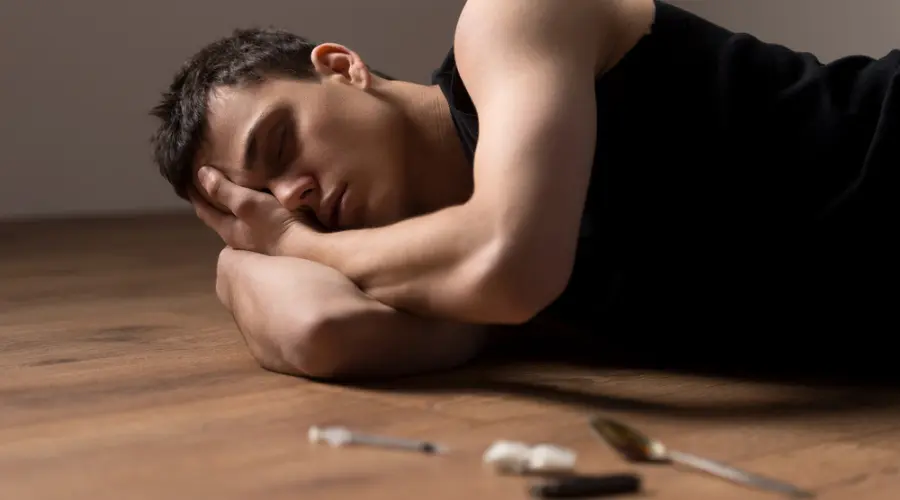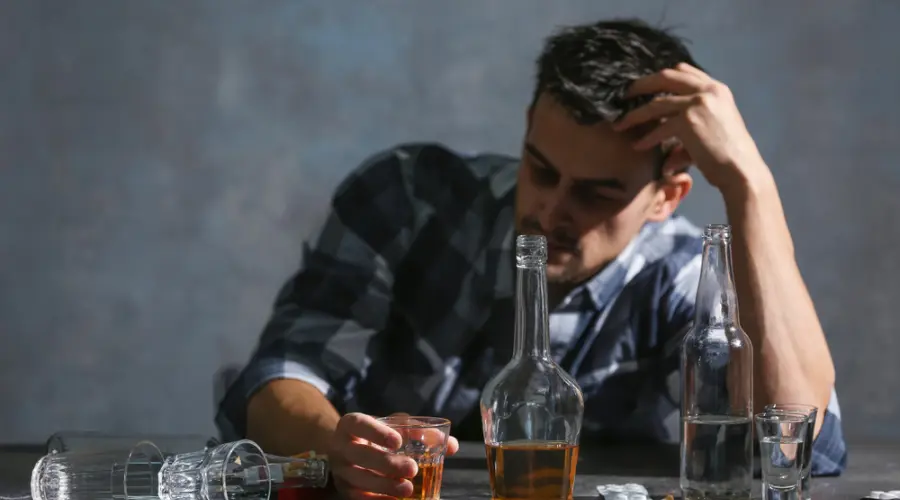Know the Stages of Addiction and When to Get Help
No one sets out to develop a destructive, life-altering addiction. While some risk factors, such as trauma, stress, career, family history, or personal history, can increase your likelihood of going through drug or alcohol addiction, it can happen to anyone.
The cycle of addiction is a trap that exists in stages. So, what is the cycle of addictive activities, and what does each stage of addiction look like?
Catalina Behavioral Health is a JCAHO-accredited treatment center in Arizona specializing in addiction and mental health disorders. Our staff members understand addiction well, and many of them have personal experience.
This blog will review the five stages identified in the cycle of addiction, as well as when to seek treatment and how it can help.
Get Effective Detox and Rehab Options at Catalina
What is the Cycle of Addictive Activities? Understanding the Stages of Addiction
Each of the following stages illustrates how substance abuse develops over time. The stages of addiction can occur in those misusing all types of addictive substances, including alcohol, prescription drugs, and illicit drugs. All drugs come with risks.
You can move from one stage to the next at any point in time; there’s no set timeline for when these occur. People who do not have a problem may never surpass stage one–for example, they might be able to drink casually without ever progressing to the abuse or misuse stage.
However, while everyone is unique, most addicts will be able to see these stages in their past upon reflection. Alternatively, you might notice that you’re in one of the following stages of the addiction cycle right now, indicating a need for a need for substance abuse treatment and support planning.
1. The Experimental or Causal Usage Stage (Initial Use)

During the first stage of addiction, you may try a substance for the first time or use it casually. You may drink alcohol here and there, or you might try a substance like cocaine for the first time at around this stage.
For someone who goes on to engage in chronic misuse of prescription medications, this could also refer to around the time that you start using the drug for a medical purpose, like physical pain caused by surgery.
At this point in time, you will not yet have experienced negative effects from using drugs or alcohol; only the desirable or pleasurable feelings and effects. This can also be called the initial use stage.
2. The Regular Use or Risky Behavior Stage
At this stage, you start to use alcohol or other drugs regularly. The negative effects of using substances may start at this time. Maybe your performance at work or school starts to slip, or social relationships with those who aren’t using substances regularly start to change.
Perhaps mental and physical health effects (e.g., trouble sleeping, GI distress) start to present from the use of substances. This stage puts you at risk of developing a substance use disorder.
3. The Misuse of Abuse Stage
The line between this stage and the previous stage can be thin, but it is apparent. Individuals in this stage might start to face more lasting or harmful consequences of substance use. For example, legal or financial issues, getting in trouble for poor attendance at work due to drug use, and serious relationship or family problems.
At this time, you may notice symptoms like drug or alcohol cravings and feeling depressed or irritable when you can’t use the substance. This is a warning sign, as it indicates increased tolerance.
4. Alcohol or Drug Dependence (the Addiction Stage)

Also called the addiction stage, you will meet the criteria for a substance use disorder at this point. This part of the cycle of addiction is typically marked by physical dependence and continuous use of a substance despite the problems it causes in your life.
At this stage, you may experience withdrawal symptoms when attempting to stop or reduce the amount you use a substance, or you may keep using drugs or alcohol to avoid withdrawals.
Professional treatment is crucial for those facing drug or alcohol dependence.
5. The Relapse Stage
About 40-60% of people facing substance abuse experience relapse at some point in time, which is why it is sometimes referred to as the fifth stage of addiction. For some, though not all, it can be a part of the recovery process. You do not need to relapse to have a valid substance use disorder.
A relapse does not indicate failure, and it doesn’t mean that you won’t get and stay sober. Ideally, treatment centers should teach relapse prevention and give clients skills they can use to address a slip-up or relapse if it is ever necessary in the future.
Get Effective Trauma Treatment Options – Reach Out Now!
When to Get Help for Addictive Behaviors
You can seek professional help for addictive behaviors as soon as you realize that there’s a problem. It’s ideal to break the cycle of addiction as soon as you can. While it is great to get support early on if possible, it’s never too late to seek help. As long as you’re here, substance abuse treatment is 100% worthwhile.
Treatment can help you avoid further negative consequences of drug abuse. At Catalina Behavioral Health, we have a team of case managers, therapists, and medical staff who can help you with every element of addiction recovery, from navigating legal issues to learning effective coping skills and improving interpersonal relationships.
If you have a co-occurring mental health disorder, like anxiety, depression, post-traumatic stress disorder, or any other mental illness, we can help. Catalina Behavioral Health provides integrated treatment for those experiencing both addiction and mental health concerns, as recommended by the Substance Abuse and Mental Health Services Administration.
Breaking the Addiction Cycle Through Treatment

Getting addiction treatment is the best way to break free from the addiction cycle. Just as addiction develops in stages that can look different from person to person, treatment needs can be diverse.
When you connect with the Catalina Behavioral Health team about getting treatment at our center, we will schedule a free intake assessment. At this time, our team can discuss your treatment options with you and help you choose a starting level of care.
Detox for Withdrawal Symptoms
Before entering inpatient or outpatient substance abuse treatment programs, you may need to pursue medical detox or withdrawal management services. Drug detox programs help you stop drug or alcohol abuse by providing supervision and treatment while you are experiencing withdrawal symptoms.
Usually, detox lasts for about one week until the acute withdrawal stage is over.
Inpatient and Outpatient Substance Abuse Programs
Inpatient and outpatient addiction treatment programs provide intensive therapy for substance abuse. The type of treatment program you enter may depend on the severity of your symptoms.
For example, outpatient treatment may be suitable for someone with mild symptoms who is able to refrain from using substances outside of treatment hours, whether as a starting point or following an inpatient rehab program.
Many people start with inpatient treatment because it removes their access to substances while allowing them to focus fully on recovery. Catalina Behavioral Health typically recommends that clients start with inpatient care and move down to lower levels of care in steps (as recommended by your team during the treatment process).
Aftercare Planning and Relapse Prevention

Having the right skills means that you can pick yourself back up after a relapse–that’s why aftercare planning and relapse prevention planning are significant parts of our programs. Before you leave our treatment center, Catalina Behavioral Health will help you plan for your next steps.
Our free alumni support program for former clients will help you stay in touch with the support system you build in treatment once you’re back home. We’re dedicated to helping you through every stage of addiction recovery.
Contact Catalina for Proven Addiction Treatment Programs
Catalina Behavioral Health provides comprehensive substance abuse and mental health treatment in Tucson, AZ. Our compassionate and experienced team is here to help you break free from the addiction cycle, and the first step is to get in touch with us.
Contact Catalina Behavioral Health today to verify your insurance coverage for treatment, start the intake process, or ask a question today. We welcome calls from those seeking help for themselves or someone else.
Up To 100% of Rehab Costs Covered By Insurance
FAQs Regarding the Cycle of Addiction
What is the loop of addictive behavior?
When you use drugs or alcohol repeatedly, your tolerance increases. This is the loop of addiction or addictive behavior; it keeps you stuck in addiction because you need more and more of a particular substance to get the same effects as before over time, potentially resulting in heavy substance abuse.
What are the 4 steps of the pathway of addiction?
The pathway to addiction is the same as the cycle of addiction. The four steps of the pathway to addiction include experimentation, regular or risky use, drug addiction, and dependency. Some people add relapse as the fifth or final stage due to the prevalence of relapse.
While not everyone goes through a relapse, it is important to acknowledge that relapse does not mean you won’t recover.
References
- https://www.samhsa.gov/adult-drug-use
- https://nida.nih.gov/publications/drugs-brains-behavior-science-addiction/treatment-recovery
- https://www.samhsa.gov/co-occurring-disorders




